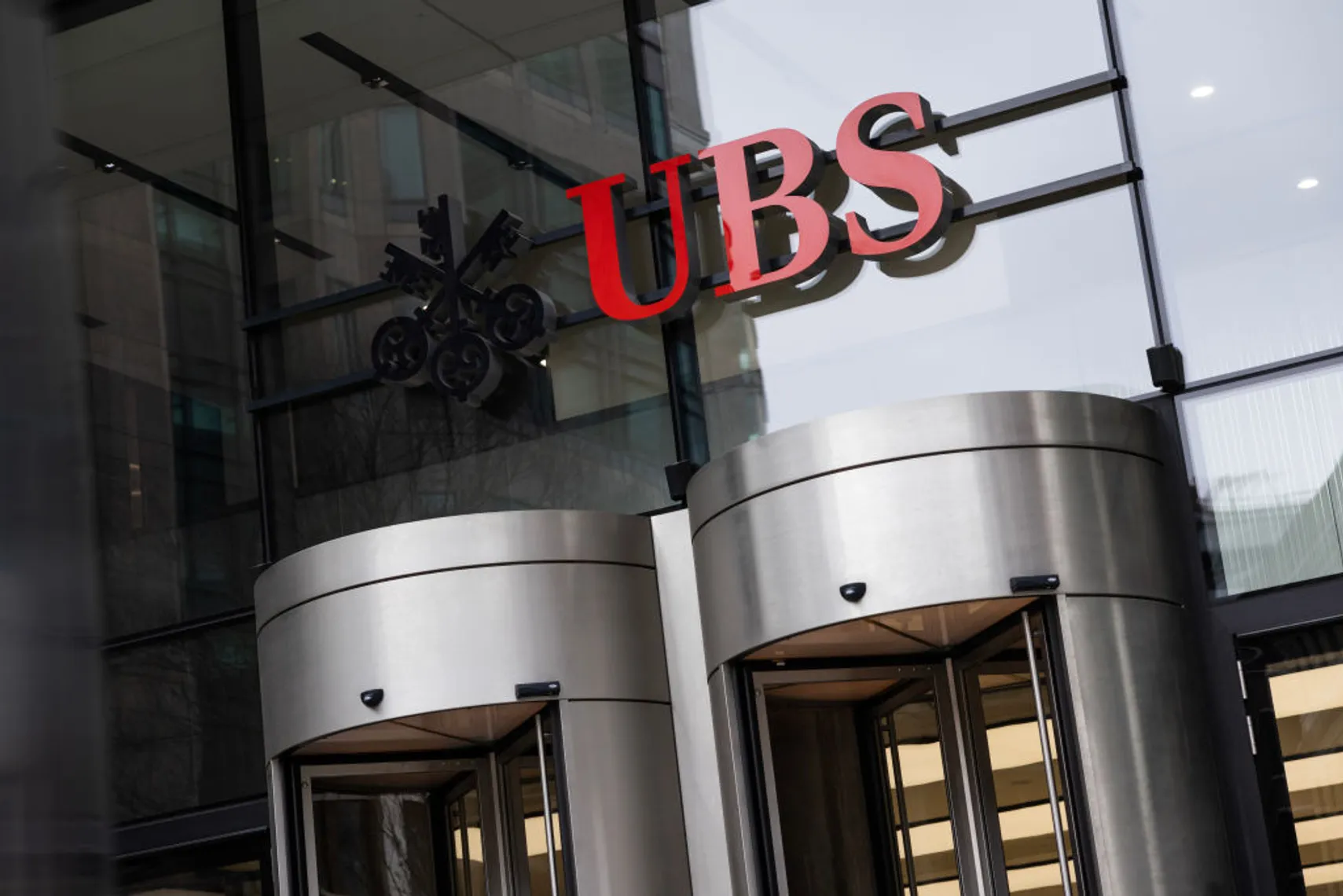UBS shareholders: who owns the bank that acquired Credit Suisse
Following its acquisition of Credit Suisse, UBS Group has become one of the largest financial institutions in global banking. This article explores UBS’s ownership structure, outlining its key shareholders, governance framework and the impact of the 2023 takeover.
After speculation about a potential banking crisis, Switzerland’s largest bank, UBS Group AG (UBSG), completed its acquisition of Credit Suisse (CS) in 2023 in a government-backed rescue valued at CHF 3bn (approximately $3.2bn).
In this article, we look at the major UBS shareholders and the bank’s ownership structure following the takeover.
What is UBS Group?
UBS Group AG (UBSG) is a global financial services company based in Switzerland and one of the world’s largest investment banks. It provides wealth management, investment banking, asset management and retail banking services to private, corporate and institutional clients.
Founded in 1862 as the Union Bank of Switzerland, it merged with the Swiss Bank Corporation (SBC) in 1997 to form UBS AG. The group operates in more than 50 countries and is widely regarded as a leading financial institution.
UBS’s leadership has changed since the merger, with several Credit Suisse executives joining the management team and adjustments to its board and capital structure approved at the 2025 AGM.
Past performance is not a reliable indicator of future results.
Go to market page
Who are the shareholders of UBS?
UBS Group’s ownership is broadly diversified, with shares held mainly through nominee and custodial accounts.
Institutional investors collectively own over half of UBS shares, while the rest are held by other financial institutions, government funds, banks and retail investors. UBS AG itself holds around 5.9% of its shares for treasury, employee compensation and other purposes.
As of 10 November 2025, major UBS shareholders include:
| Holder | % of holding | Shares held | Date reported | Value (in 1,000s USD) |
|---|---|---|---|---|
| UBS Asset Management AG | 5.89% | 186,581,939 | 30 June 2025 | 5,662,762 |
| Norges Bank Investment Management | 4.55% | 144,091,392 | 30 June 2025 | 4,373,174 |
| The Vanguard Group, Inc. | 4.27% | 135,357,012 | 30 June 2025 | 4,108,085 |
| Massachusetts Financial Services Company | 2.02% | 63,935,645 | 30 June 2025 | 1,940,447 |
| ZKB Asset Management | 1.88% | 59,561,637 | 30 June 2025 | 1,807,696 |
Source: Investing.com
These entities typically act as custodians or trustees for a wide mix of beneficial owners, including pension funds, banks and asset managers.
Geographic distribution
Among the largest 1,000 shareholders, the key regions of origin are:
- Switzerland (~89.5%)
- Europe, Middle East and Africa (~6.6%)
- Asia / Pacific (~2.9%)
- Americas (~1.1%)
Source: UBS Group, 30 September 2025
Due to the widespread use of nominee structures, the ultimate beneficial owners are often not publicly disclosed.
Regulatory and governance framework
Swiss regulations limit the voting rights of nominees to a maximum of 5%, unless specific exemptions apply to clearing organisations.
UBS holds no cross-shareholdings above 5% with any other entity.
At its 2025 AGM, UBS shareholders approved further capital adjustments and share buybacks, reflecting ongoing post-takeover restructuring measures.
The Credit Suisse takeover
The Credit Suisse acquisition was completed as part of an emergency rescue coordinated by Swiss regulators to protect financial stability.
The transaction saw Credit Suisse shareholders receive 0.76 UBS shares for each Credit Suisse share, compared with a market value of CHF 1.86 per share, leading to substantial losses for former Credit Suisse investors.
In addition, holders of Credit Suisse’s $17bn additional tier one (AT1) capital instruments were written down to zero by order of the Swiss authorities.
The deal was approved outside normal shareholder voting procedures, with regulatory intervention designed to safeguard both Swiss and global financial markets.
UBS stated that it would integrate Credit Suisse’s operations while managing related litigation risks and capital restructuring.
Market and regulatory reaction
Regulators worldwide viewed the acquisition as a stabilising move for the global banking sector. The US Treasury, the Federal Reserve, the European Central Bank and the Bank of England each issued statements supporting the swift resolution.
Analysts noted that while the deal prevented the collapse of Credit Suisse, it significantly altered UBS’s shareholder base and long-term investment profile. UBS now faces a new phase of integration and restructuring through 2025.
Whether UBS Group is suitable for an individual portfolio depends on personal objectives, risk tolerance and financial circumstances. Always conduct independent research and avoid trading with funds you cannot afford to lose.
Create an account Open a demo account
FAQ
Does UBS Group have cross-shareholdings?
Under Swiss corporate law, UBS holds no cross-shareholdings above 5% with any other entity. Nominee voting rights are capped at 5%, unless specific exemptions apply for recognised clearing organisations. These rules are intended to support transparent and balanced corporate governance across Switzerland’s financial sector.
What does UBS do as a company?
UBS Group AG is a global financial services provider headquartered in Switzerland. The company operates across wealth management, investment banking, asset management and retail banking, serving private, corporate and institutional clients. Its operations span more than 50 countries, with a focus on wealth preservation, capital markets and sustainable investment solutions.
Why did UBS acquire Credit Suisse?
UBS acquired Credit Suisse in March 2023 as part of a Swiss government-supported rescue plan aimed at maintaining financial stability. The deal was valued at CHF 3bn (about $3.2bn) and completed under emergency legislation. The acquisition was designed to stabilise the banking system, preserve client confidence and prevent wider market disruption.